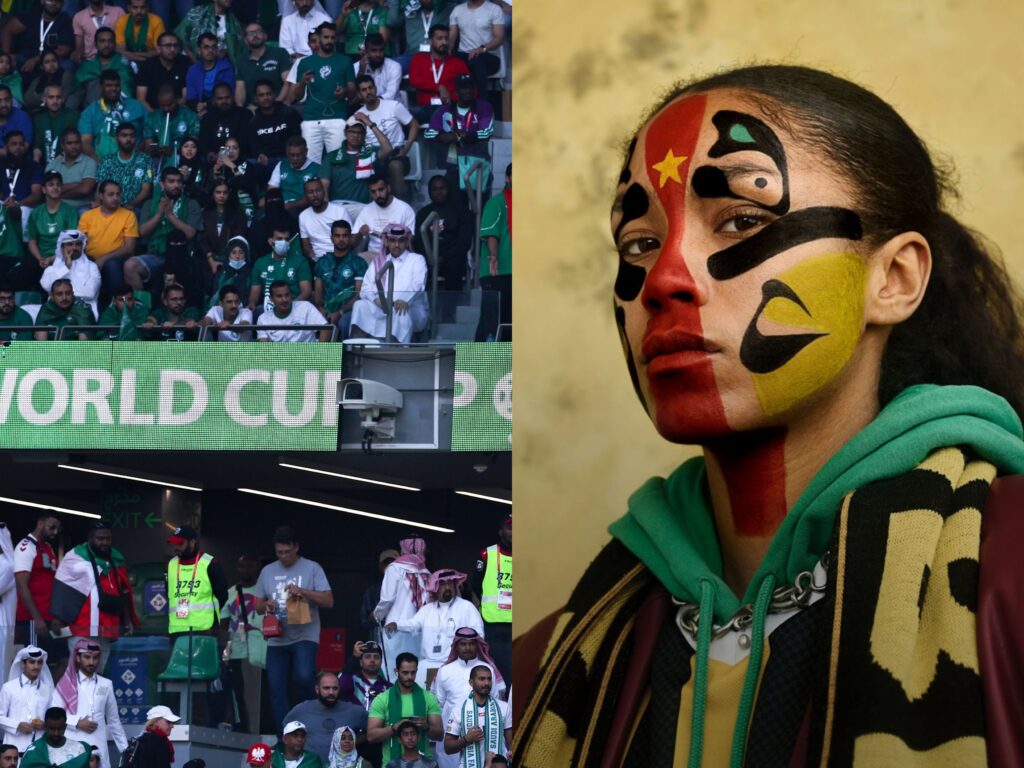- A team at Camoflags wanted to see if face paint designs could outsmart facial recognition cameras.
- The design, which uses concepts from Juggalo makeup, was designed by an AI program.
- The team found that many of the designs were able to circumvent various facial recognition software.
What if simple face paint could fool some of the best facial recognition tools available at the Qatar World Cup?
A team known as Camoflags sought to answer that question with AI-generated, Juggalo-inspired face paint designs that could be used to evade facial recognition cameras.
The experiment is uniquely suited to the World Cup, as face paint is a common feature at soccer matches for fans showing support for their teams.
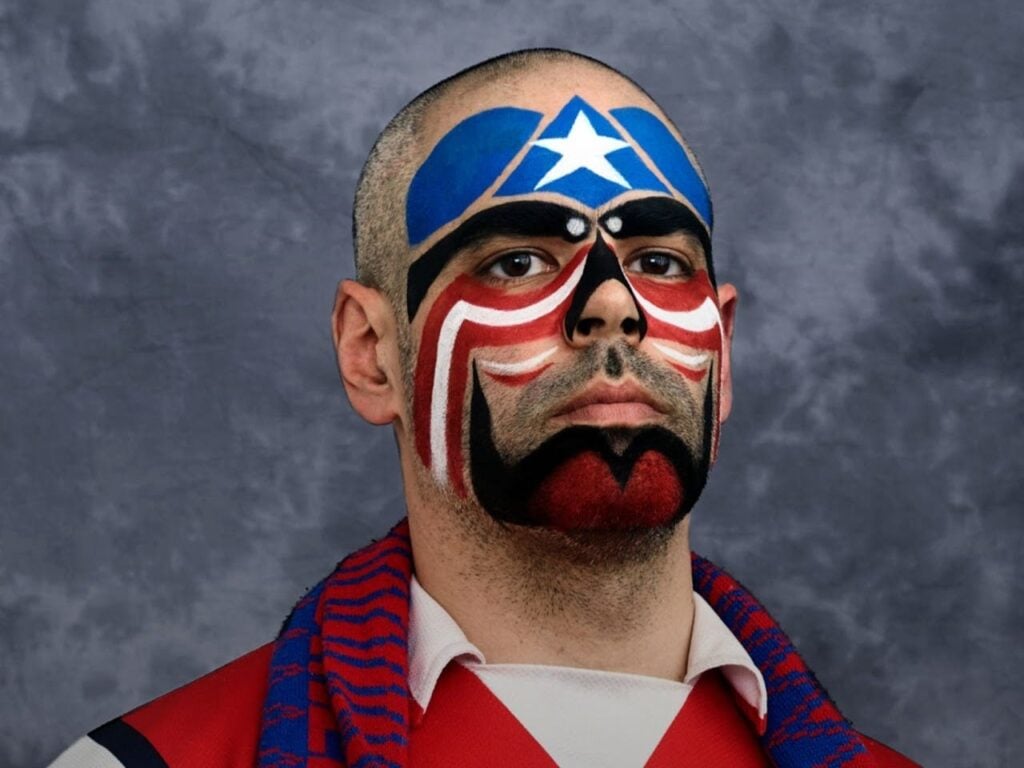
The Qatar World Cup, which ends on December 18, has been criticized for its approach to security, with concerns that the event could become a hotbed for espionage and that visitors could be monitored on their phones through app surveillance.
The event has also been criticized for human rights abuses: The death of American sports journalist Grant Wahl, who died on the way to the hospital after collapsing at the World Cup stadium, resulted in renewed attention on the rights of LGBTQ individuals in Qatar. Wahl had previously been detained by authorities outside the World Cup stadium for wearing a rainbow shirt.
About 15,000 facial recognition cameras have been set up in and around the stadium in order to identify terror threats and "hooliganism," the World Cup's chief technology officer told AFP in August.
"What you see here is a new standard, a new trend in venue operations, this is our contribution from Qatar to the world of sport. What you see here is the future of stadium operations," Niyas Abdulrahiman told AFP.
Tao Thomsen, one of the team members at Camoflags, a project from the creative agency Virtue, told Insider the team came up with the idea to test facial recognition with strange make-up combinations that distorted facial features years ago in response to the growing popularity of deepfakes of women being created without their consent. The original intention for the project was to create make-up looks for women to wear that deepfake AI technology couldn't recognize, thereby protecting their faces from being used in sexually suggestive or non-consensual videos.
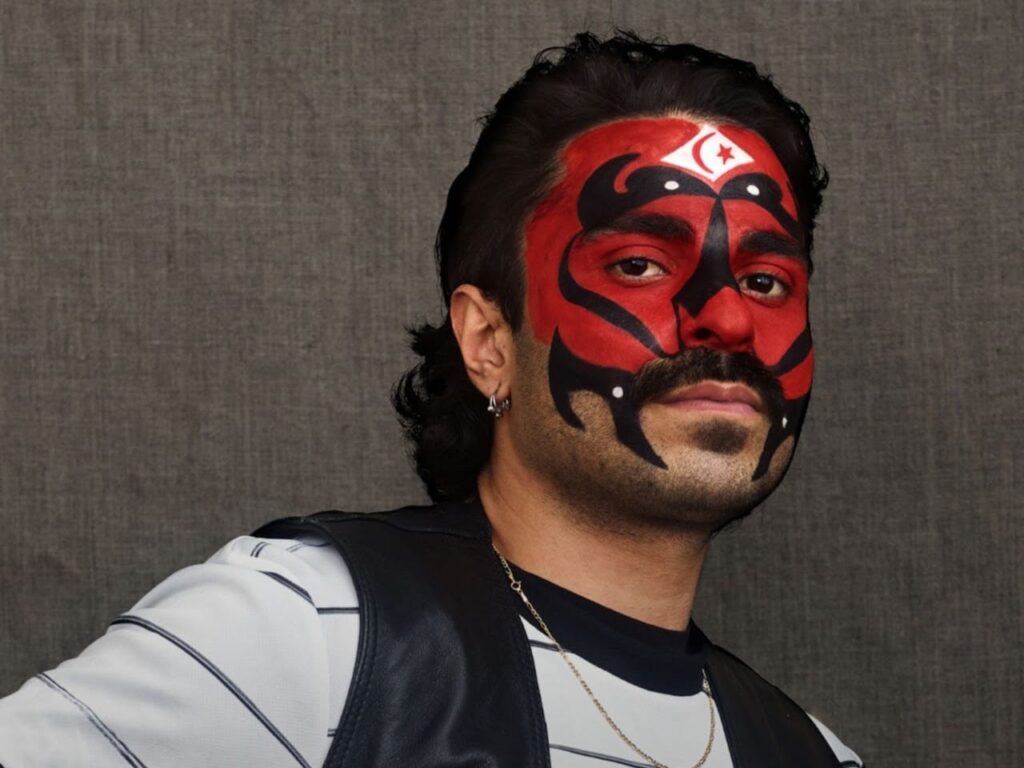
The idea of using face makeup to try to fool facial recognition algorithms is not new. CV Dazzle, a 2010 project from artist Adam Harvey, was one of the first attempts at using geometric shapes and other gimmicks to outsmart AI. There is also some evidence that Juggalo makeup — which consists of clown-like makeup inspired by the hip-hop group Insane Clown Posse — in particular, is effective at tricking facial-recognition systems.
The challenge with projects like these was their practical application, Thomsen said. The team realized it would be difficult to ask women to wear "crazy" makeup combinations at all times. But with soccer, it was different.
"Because if there's one place where it's okay to wear weird patterns on your face, it's a [soccer] match," Thomsen said. "People are expecting you to paint your team colors and flags and all that on your face."
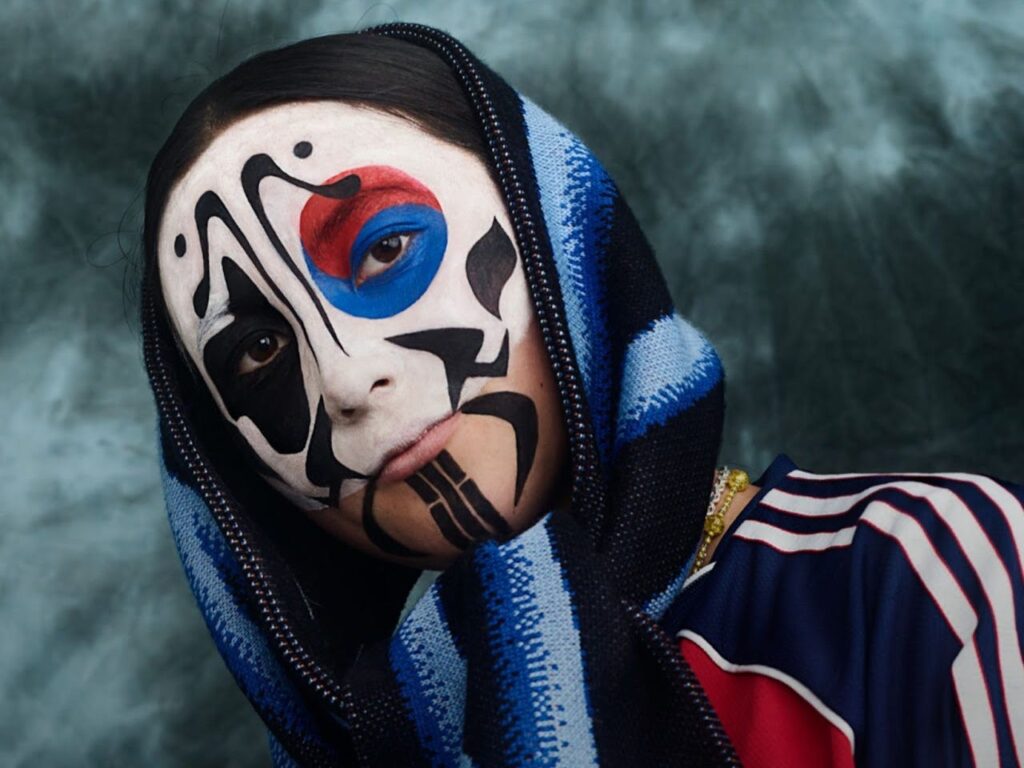
In order to create the ideal shape, Camoflags fed an AI art software tool, Midjourney AI, a series of descriptions that would output designs with the perfect blend of Juggalo makeup and various flags.
"We gave it these kind of descriptions and then ran that process, a lot of times until we got to a result that couldn't be recognized as a face when we pass it through like face recognition software," Thomsen said. "And then we knew we had a little bit of human love afterwards to tidy things up and make sure that [the patterns] are also aesthetically functional because generative AI does start to hallucinate at some point and make some really weird stuff."
The team tested the various Juggalo and flag patterned make-up on different consumer-grade facial recognition tech — the actual facial camera system used in Qatar is unknown to the public — and found many of the designs were able to elude cameras.
Out of the 10 systems that were tested, the team estimates that around 80% of the tests were successful.
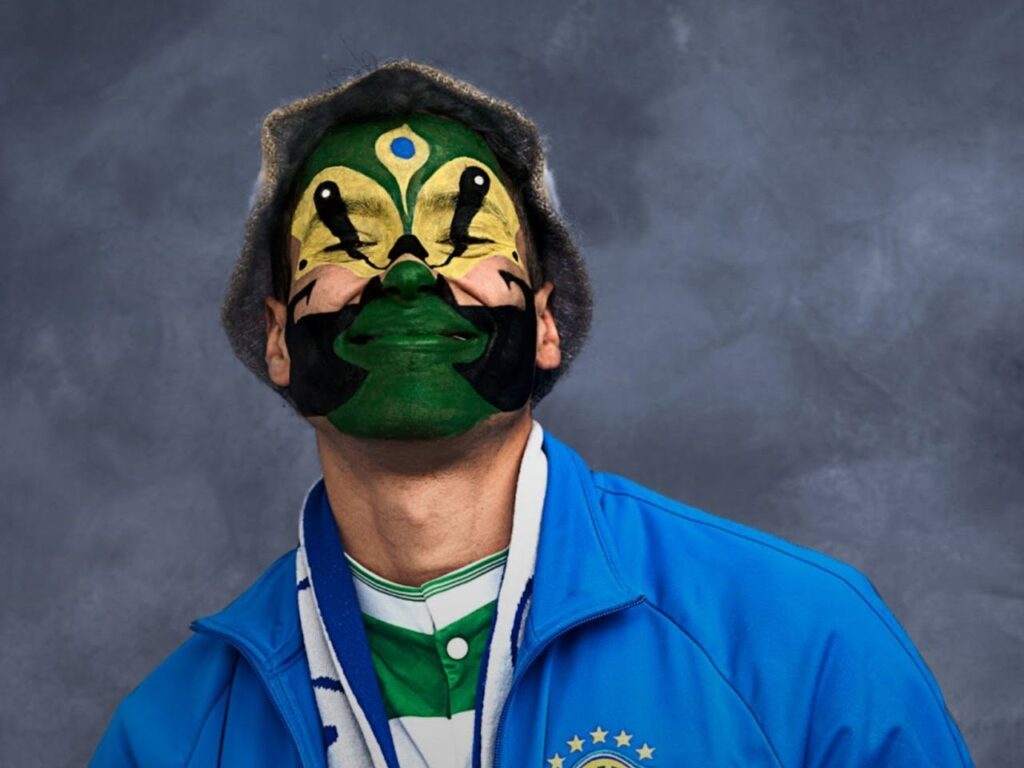
Although Camoflags isn't aware of any adopters of their face paint designs at the World Cup yet — and recommends people don't risk getting in trouble in Qatar by testing its limits — they think it will help start a conversation about surveillance at sporting events.
Morten Grubak, another team member at Camoflags, told Insider that the team created face filters that would allow users to place virtual Juggalo designs and "color them out a little bit like a drawing book" using face paint.
Thomsen specifically pointed to the UK, where soccer fans have already had to deal with faulty facial recognition Sports venues across the world have also begun using facial recognition technology to identify people engaging in illegal activity, to collect data for advertisements, and verify ticket holders for entry at events.
There is also evidence that facial recognition technology is less likely to correctly identify women and people of color, which could lead to people being misidentified for crimes by law enforcement.
"We know that there's a large fraction of [soccer] fans, particularly in the UK, who are very vocal about their distrust and their dislike of facial recognition, and we're hoping that this can become a tool for [soccer] fans there and everywhere in the world, to take a stand against facial recognition," Thomsen said.
